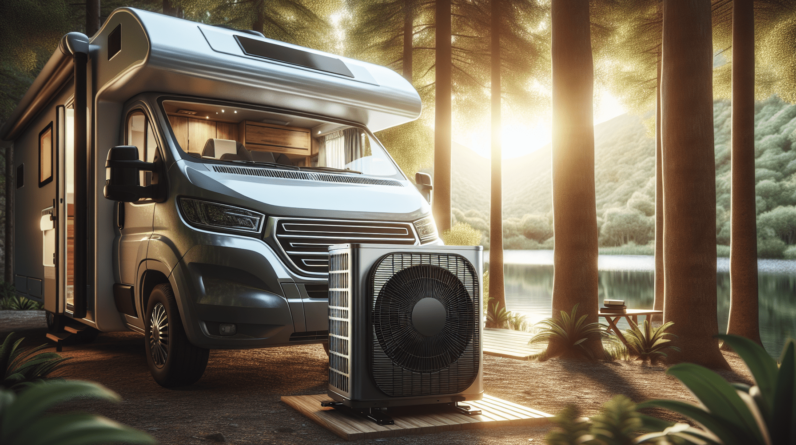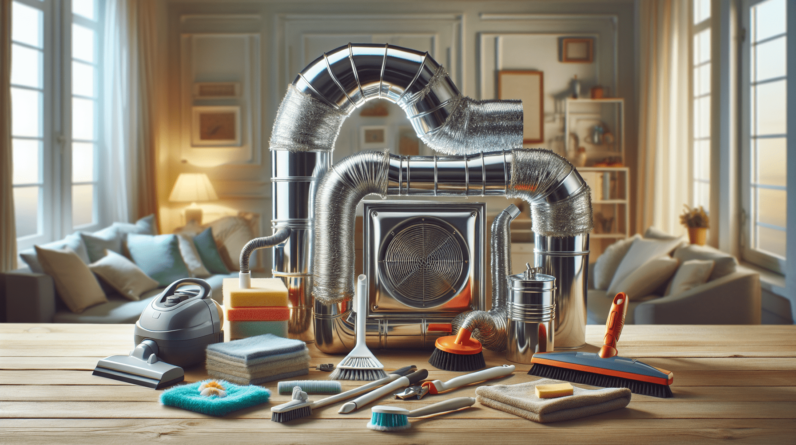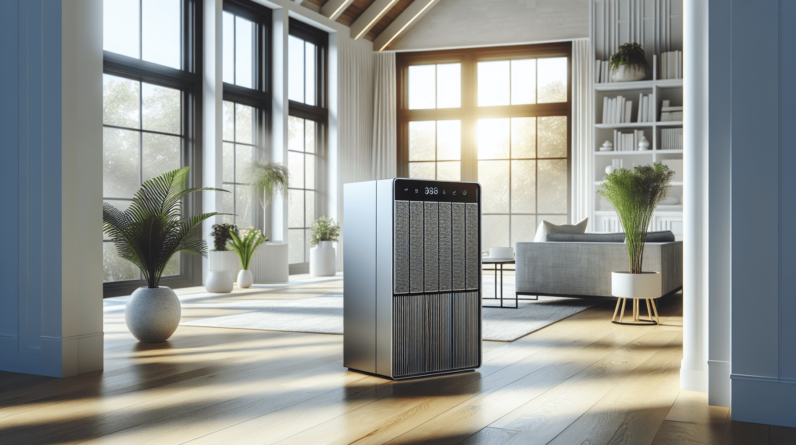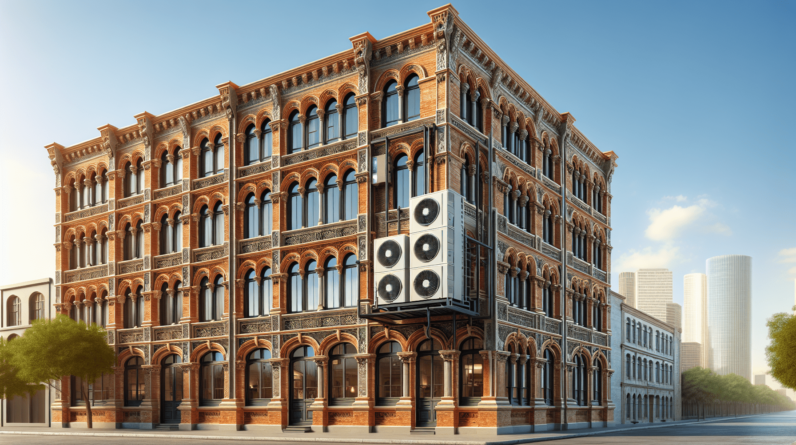

Have you ever found yourself sweating in the summer heat, dreaming of a cool sanctuary as you camp out in nature?
Understanding Camper Air Conditioners
When the temperature rises, having a reliable camper air conditioner can be the difference between a comfortable journey and a sticky, sleepless night. A camper air conditioner helps regulate the internal temperatures of your vehicle, allowing you to rest and relax regardless of the weather outside. Let’s break down the components and types of camper air conditioners available so you can make an informed choice for your next adventure.
Types of Camper Air Conditioners
There are several types of air conditioning systems available for campers, each suited for different needs and rigs. Understanding these options can help you choose the right one based on your specific requirements.
Rooftop Air Conditioners
Rooftop air conditioning units are a popular choice for many campers and RVs. They are mounted on the roof and often cover a larger area.
Benefits of Rooftop Units:
- Less Interior Noise: This type is typically quieter indoors since the compressor is located on the roof.
- Direct Air Distribution: Rooftop units provide efficient cooling directly from above, ensuring even temperature distribution.
Drawbacks:
- Increased Height: You need to be cautious of low overhangs or branches while driving.
- Maintenance: Accessing the unit for repairs or maintenance can be a bit challenging.
Portable Air Conditioners
If you prefer something more flexible, you might consider portable air conditioners. These units can be moved around within your camper.
Benefits of Portable Units:
- Versatile Placement: You can adjust the location of the unit based on your needs.
- Easy to Store: When not in use, a portable air conditioner takes up less space.
Drawbacks:
- Limited Cooling Capacity: They may not cool larger spaces as efficiently as rooftop units.
- Requires Ventilation: You’ll need to set up exhaust hoses to vent hot air outside.
Window Air Conditioners
Some campers opt for window units, which can be installed in an open window space.
Benefits of Window Units:
- Cost-Effective: They usually come at a lower price point than other options.
- Effective Cooling: They can be quite powerful to cool small-to-midsized spaces.
Drawbacks:
- Space Requirement: You’ll need a window that can accommodate the unit without blocking your view.
- Limited Portability: Once installed, you can’t easily move the unit around.
How Do Air Conditioners Work?
Understanding how air conditioners function can help you maintain them and ensure they operate efficiently.
The Basics of Air Conditioning
Air conditioners work by removing heat and moisture from the air inside your camper, leaving you with a more comfortable atmosphere.
Key Components:
- Compressor: The heart of the air conditioning system, compressing refrigerant gas and circulating it through the system.
- Condenser Coil: Located on the outside, it releases heat absorbed from the air inside the camper.
- Evaporator Coil: This component cools the air, absorbing heat from the interior space.
- Refrigerant: A fluid that absorbs and releases heat, essential for the cooling process.
The Refrigeration Cycle
The refrigeration cycle is a vital process that allows air conditioning units to cool down spaces. Here’s how it works:
- Compression: The compressor compresses the refrigerant, turning it into a high-pressure gas.
- Condensation: That high-pressure gas flows to the condenser, where it dissipates heat and turns into a liquid.
- Evaporation: The refrigerant moves to the evaporator coil, where it absorbs heat from the inside air and cools it down, turning back into a gas.
- Cycle Repeats: The cycle restarts as the gas returns to the compressor.

Choosing the Right Size Air Conditioner
Selecting the appropriate size for your camper air conditioner is crucial for maintaining efficient cooling.
BTU Ratings
Air conditioners are rated by their British Thermal Units (BTUs). A higher BTU means more cooling power, but if you choose one that’s too powerful, it may not effectively remove humidity from the air.

Calculating Your Needs
Here’s a quick way to estimate the BTUs you need based on your space:
| Camper Size (Square Feet) | Recommended BTU Rating |
|---|---|
| Up to 100 | 5,000 – 7,000 BTUs |
| 100 – 200 | 7,000 – 10,000 BTUs |
| 200 – 300 | 10,000 – 12,000 BTUs |
| 300 – 400 | 12,000 – 13,000 BTUs |
While this table provides a general guideline, consider factors like insulation, the number of windows, and how many people typically occupy your space.
Energy Efficiency
It’s also important to consider energy efficiency when selecting an air conditioner. Look for models with a good Energy Efficiency Ratio (EER) or Seasonal Energy Efficiency Ratio (SEER), as these numbers indicate how effectively the unit will cool your camper while minimizing energy consumption.
Installation Considerations
Once you’ve chosen the right air conditioner, you’ll need to think about installation. This can vary based on the type of unit you’ve selected.
Rooftop Units
Installing a rooftop air conditioner might require additional support since the unit adds weight to the roof. It’s advisable to:
- Check the Roof Structure: Ensure your roof can support the additional weight.
- Sealing: Make sure to properly seal the unit to prevent leaks and ensure a secure fit.
Portable Units
For portable units, installation is generally straightforward:
- Set Up Exhaust Hose: It’s crucial to position the exhaust hose correctly for effective operation.
- Power Source: Ensure you have an available power outlet.
Window Units
If you choose a window unit, installation typically involves:
- Secure Fastening: Use brackets or screws to secure the unit in place properly.
- Sealing Edges: Use weatherstripping to prevent air leaks around the window.

Maintenance Tips for Camper Air Conditioners
Proper maintenance is critical for the longevity and performance of your camper air conditioner. Here are some helpful tips:
Regular Cleaning
Dust and debris can accumulate in and around your air conditioning unit over time. Here’s what you should do:
- Filter Maintenance: Check and clean or replace the air filter regularly, usually every month or two.
- Clean Coils: Your evaporator and condenser coils should be cleaned at least once a year.
Check the Drainage
Make sure the drainage system is working correctly. A clogged drain can lead to water buildup, which can cause damage and promote mold growth.
Seasonal Preparation
Before you hit the road, ensure your air conditioner is ready for the season:
- Preseason Checkup: Test your unit a few days before your trip to ensure it’s working correctly.
- winterizing: If you’re storing your camper for winter, consider properly winterizing your air conditioner to avoid damage from freezing temperatures.
Troubleshooting Common Issues
Sometimes, issues may arise with your air conditioning system. Let’s discuss common problems and their solutions.
Insufficient Cooling
If your air conditioner isn’t keeping your camper cool, consider:
- Blocked Airflow: Check for blocked vents or filters that may restrict airflow.
- Refrigerant Levels: Low refrigerant levels can impede efficient cooling; you may need a professional to check this.
Unusual Noises
Hearing strange sounds? It could be due to:
- Loose Parts: Inspect the unit for loose components, which may need tightening or replacement.
- Obstructions: Ensure no debris is interfering with the fan or compressor.
Water Leaks
If you notice water pooling, it might be due to:
- Clogged Drain: Ensure the drainage system is clear.
- Seal Damage: Check for damaged seals that might allow water to enter the camper.
Using Your Air Conditioner Effectively
Maximizing the efficiency of your camper air conditioner can help you enjoy a cooler space while minimizing energy use.
Optimal Temperature Settings
Setting your air conditioner to a moderate temperature can save energy. Instead of blasting cold air, try setting it to around 72°F (22°C) for comfortable cooling without excessive energy consumption.
Create Cross-Ventilation
Open windows on opposite sides of your camper to create a cross-flow of air, helping your air conditioner work more efficiently.
The Importance of Insulation
Good insulation helps keep the cool air inside your camper while keeping the heat outside.
R-Value
The R-value measures insulation effectiveness. Higher R-values mean better insulation:
| Insulation Type | R-Value |
|---|---|
| Fiberglass Batts | R-13 to R-30 |
| Foam Board | R-5 to R-10 |
| Rigid Mineral Wool | R-15 to R-20 |
When upgrading your insulation, consider using materials with higher R-values to enhance your camper’s efficiency.
Alternatives to Air Conditioning
Not everyone may want to install an air conditioner in their camper, and there are additional ways to stay cool:
Fans
Ceiling fans or portable fans can help circulate air in your camper. While they don’t lower the temperature, they can make you feel cooler through increased air movement.
Shade Solutions
Using awnings or setting up tarps can help block direct sunlight from hitting your camper, reducing heat build-up.
Ventilation
Consider a roof vent or fan that can help enhance airflow. As hot air rises, having an effective vent allows heat to escape while drawing in cooler air.
The Cost of Camper Air Conditioners
Investing in a camper air conditioner is an important decision and one that can come with varying costs.
Initial Purchase Price
The cost of camper air conditioners can range widely based on type, capacity, and brand.
Here’s a rough estimate of initial prices:
| Type | Price Range |
|---|---|
| Rooftop Units | $800 – $3,000 |
| Portable Units | $200 – $800 |
| Window Units | $150 – $600 |
Installation Costs
If you need professional assistance with installation, costs can also add up. Installation prices vary based on complexity, but you should expect additional fees between $100 and $500.
Ongoing Maintenance
Consider maintenance costs, including cleaning supplies, replacement filters, and potential repairs. Budgeting for these ongoing expenses will be critical for long-term ownership.
Summary
Camping should be a joyful experience, not overshadowed by discomfort. Investing in an air conditioner that fits your needs can make all the difference in your comfort level while enjoying the great outdoors.
By understanding the types available, how to choose the right size, and how to maintain your air conditioning unit, you’ll be better equipped to stay cool no matter where your adventures take you. From installation tips to troubleshooting common problems, you now have the knowledge to ensure your camper air conditioner serves you well for many trips to come. With that, happy camping!






